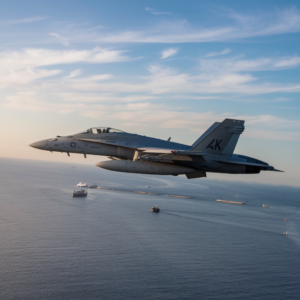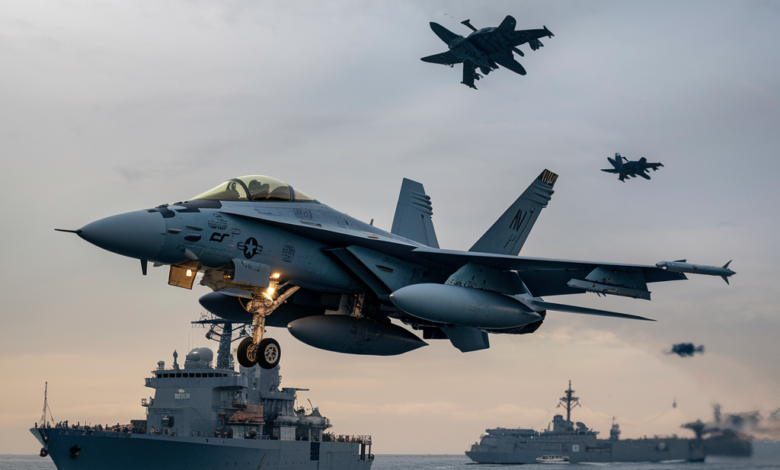Red Sea Conflict: U.S. Navy Pilots Survive Friendly Fire
Introduction
In a dramatic turn of events, two U.S. Navy pilots were shot down in a friendly fire incident over the Red Sea Conflict Zone on Sunday, marking one of the most serious incidents involving U.S. forces in over a year. Both aviators survived, but the shootdown underscores the volatile nature of the region as Iranian-backed Houthi rebels continue to threaten maritime security. Here’s a closer look at what happened and the broader implications.
The Incident
According to the U.S. military’s Central Command, the two-seat F/A-18 Super Hornet—assigned to the “Red Rippers” of Strike Fighter Squadron 11 was mistakenly struck by the guided-missile cruiser USS Gettysburg. The pilots ejected safely, with one sustaining minor injuries. The F/A-18 had just launched from the USS Harry S. Truman, which was part of a carrier strike group patrolling the region. Central Command clarified that this was not the result of hostile fire but did not elaborate on the specifics of the pilots’ mission. A full investigation is underway.

A Tense Red Sea Corridor
The Red Sea Conflict Zone has become increasingly dangerous due to ongoing Houthi rebel activity. The U.S. military has stepped up airstrikes targeting Houthi missile and drone infrastructure, responding to a string of attacks on shipping vessels in the area.
Houthis and Their Broader Campaign
The Iranian-backed Houthis claim their attacks are directed at vessels connected to Israel, the U.S., or the U.K. in retaliation for Israel’s ongoing offensive in Gaza. However, many of the targeted vessels have no direct links to the conflict, raising questions about the rebels’ motivations. Houthi forces have also launched missiles and drones at Israel, prompting retaliatory airstrikes. Despite their claims of shooting down the F/A-18, such assertions follow a pattern of exaggerated or unsubstantiated rhetoric.
Regional Implications
This incident highlights the increasing complexity of the Red Sea Conflict Zone’s geopolitical landscape. The deployment of the USS Harry S. Truman comes as tensions flare across the Middle East, fueled by the ongoing Israel-Hamas conflict. Israel has called for strong retaliatory measures against the Houthis and potentially Iran, escalating the stakes further. The Red Sea Conflict Zone’s significance as a strategic maritime corridor and the U.S. and European military presence make it a focal point of global concern. Hostile actions in the region could have ripple effects on international trade and security.
Humanitarian Toll in Gaza
The Houthi escalation is intricately linked to the Israel-Hamas conflict, which has claimed over 45,000 Palestinian lives, according to local health officials. As Israel’s offensive grinds on, Houthi forces have used the conflict as a pretext for their actions, further destabilizing the region.
Conclusion
The friendly fire incident over the Red Sea Conflict Zone serves as a sobering reminder of the challenges faced by military forces operating in high-stakes environments. With ongoing investigations, it remains to be seen how the U.S. will address this event’s operational and strategic ramifications. Meanwhile, the Red Sea Conflict Zone corridor’s volatility underscores the need for sustained international efforts to ensure regional stability.



